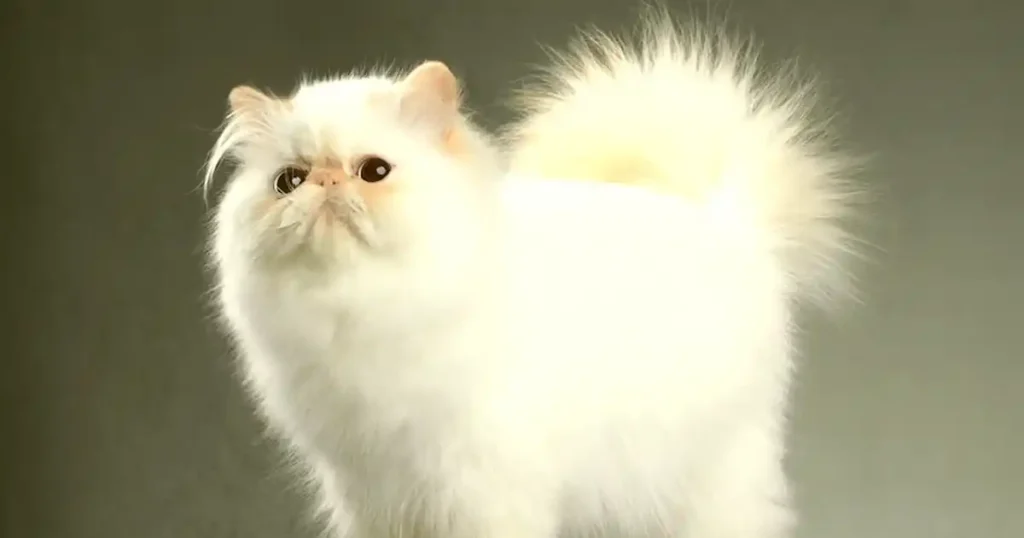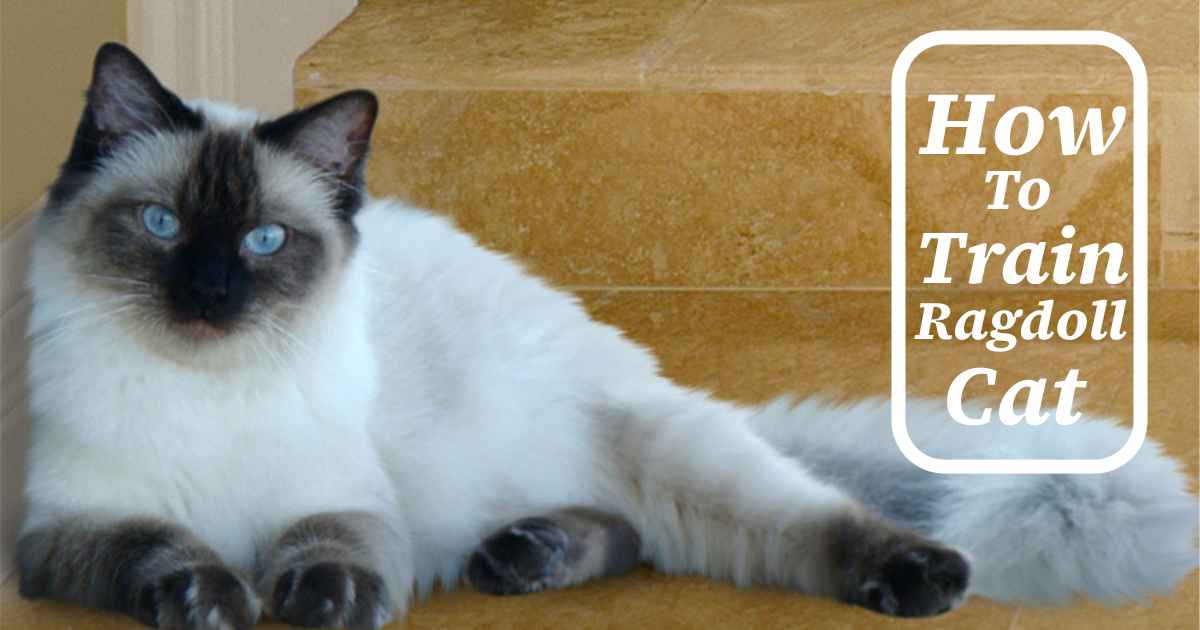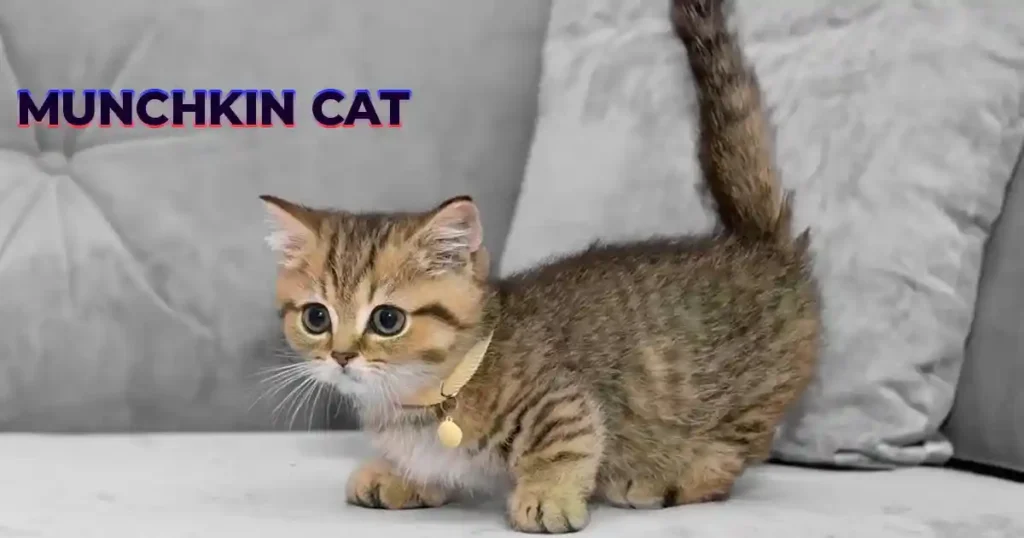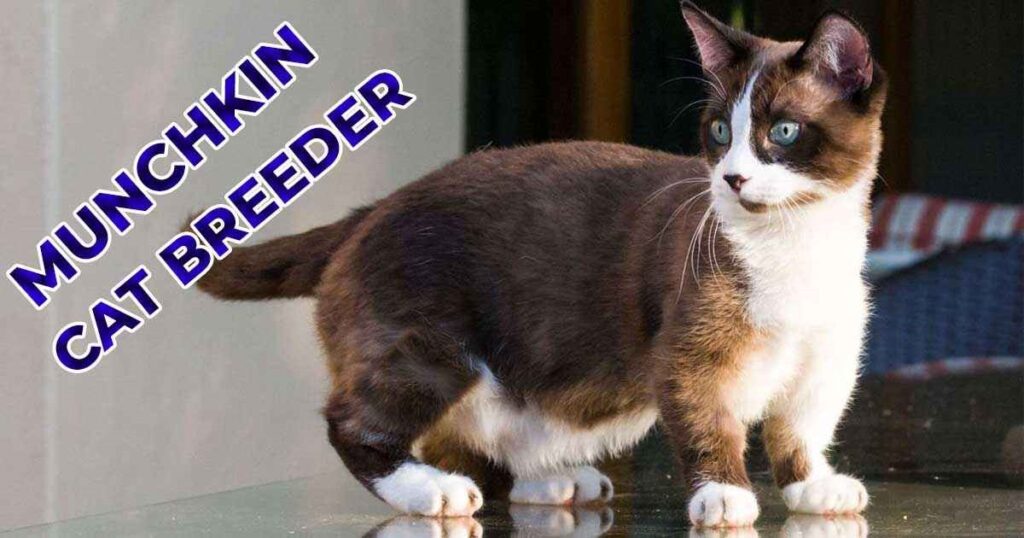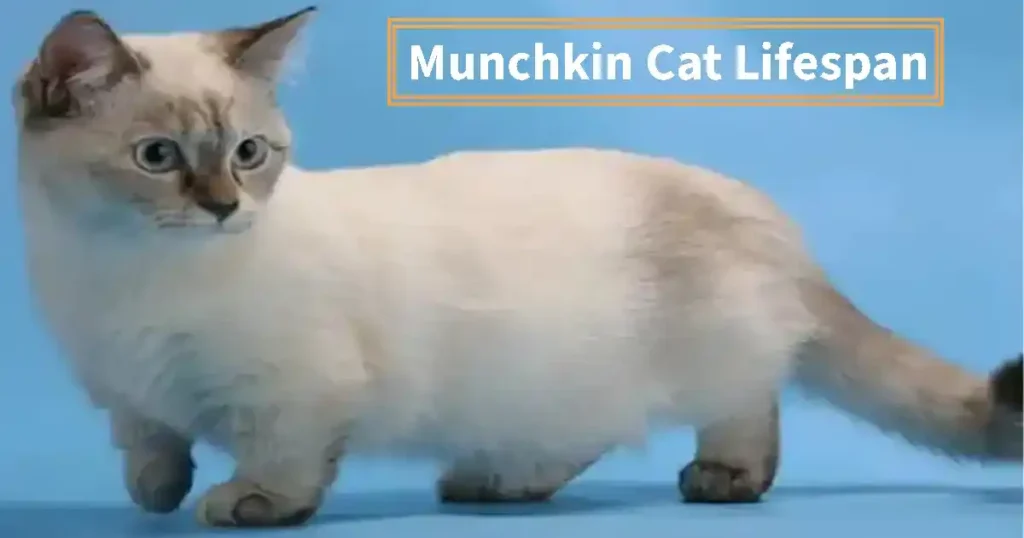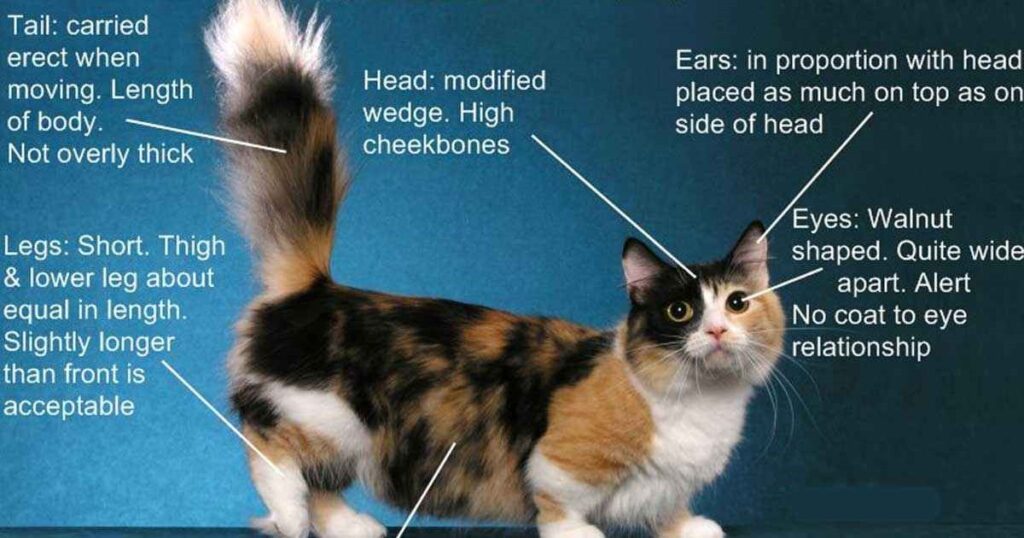Munchkin Cat Ragdoll Lifespan have of about 12 to 15 years. Ragdoll cats often live longer, with many reaching over 20 years. Therefore, a Munchkin Ragdoll mix would generally have a lifespan that falls within these ranges, influenced by factors like genetics, care, and environment. It’s always best to consult with breeders or veterinarians for more specific information.
The Munchkin-Ragdoll lifespan usually aligns with the Munchkin’s 12 to 15 years and the Ragdoll’s 12 to 15 years, with some Ragdolls living up to 20 years with proper care. Providing a healthy diet and regular veterinary check-ups is essential for maximizing their lifespan.
Comparing Munchkin cat lifespan with Ragdoll cat lifespan highlights how hybrid traits can affect longevity. A hybrid cat lifespan comparison further illustrates how crossing breeds may influence lifespan expectations. The Munchkin Ragdoll lifespan overview gives a general perspective on what to expect from these charming hybrids.
Ragdoll cats are a beloved breed recognized for their striking blue eyes, silky fur, and affectionate nature. They originated in the 1960s from a mix of breeds, including Persians, Birmans, and Burmese. Their gentle and friendly disposition quickly made Ragdolls popular among cat lovers, making them cherished companions in many households.
They are often referred to as “puppy-like” cats because they tend to follow their owners around, enjoy being held, and are exceptionally docile. Ragdolls are also large and muscular, with males typically weighing between 15-20 pounds and females between 10-15 pounds.
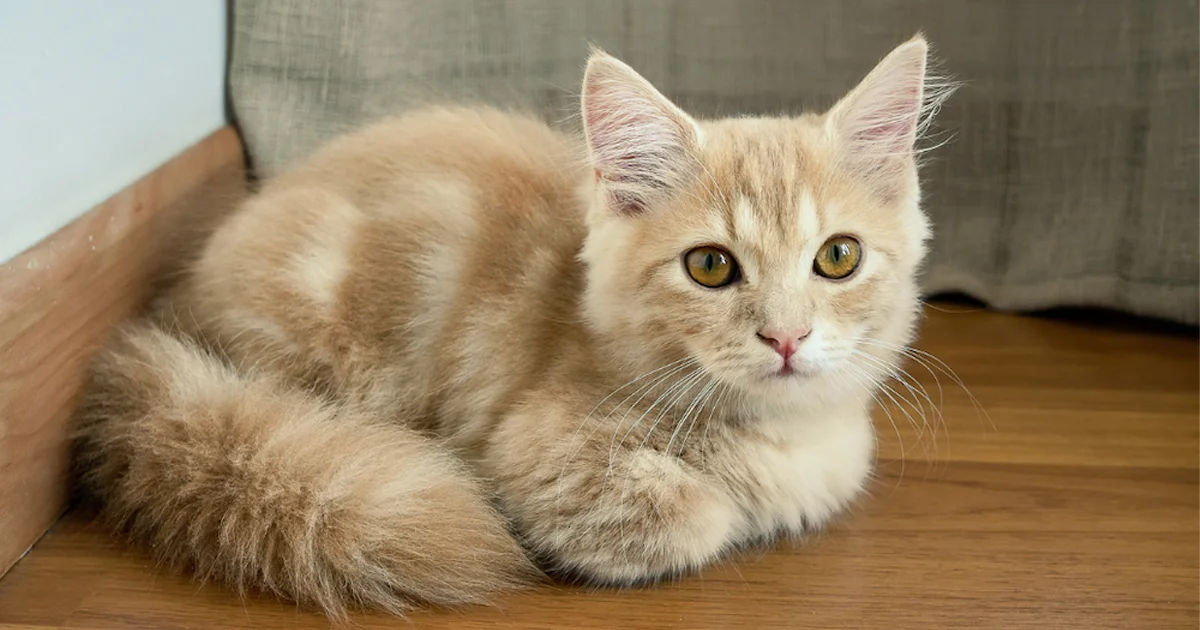
Munchkin Cat Breed Characteristics
Munchkin cats are known for their variety of coat colors and patterns, but their most distinguishing feature is their short legs. Despite their unique stature, they are surprisingly agile and can move quickly. Personality-wise, Munchkins are outgoing and curious, enjoying interactions with humans and other pets.
Their distinctive appearance, primarily characterized by their unusually short legs, is a result of a genetic mutation known as achondroplasia, making them a captivating breed for cat lovers. This genetic condition affects the growth of their bones, resulting in legs that are notably shorter than those of typical domestic cats.
Despite their short stature, Munchkins boast a normal-sized body with a robust build, giving them a balanced and compact appearance. In terms of temperament, Munchkin cats are celebrated for their playful and outgoing nature. They maintain a high level of activity and curiosity, often exhibiting behavior that mirrors their kitten-like energy well into adulthood.
| Aspect | Details |
|---|---|
| Demeanor | Lively, adaptable, well-suited for households with children and other pets. |
| Health Considerations | Unique skeletal structure may lead to potential joint issues. |
| Health Management | Regular veterinary check-ups and appropriate care to address genetic concerns. |
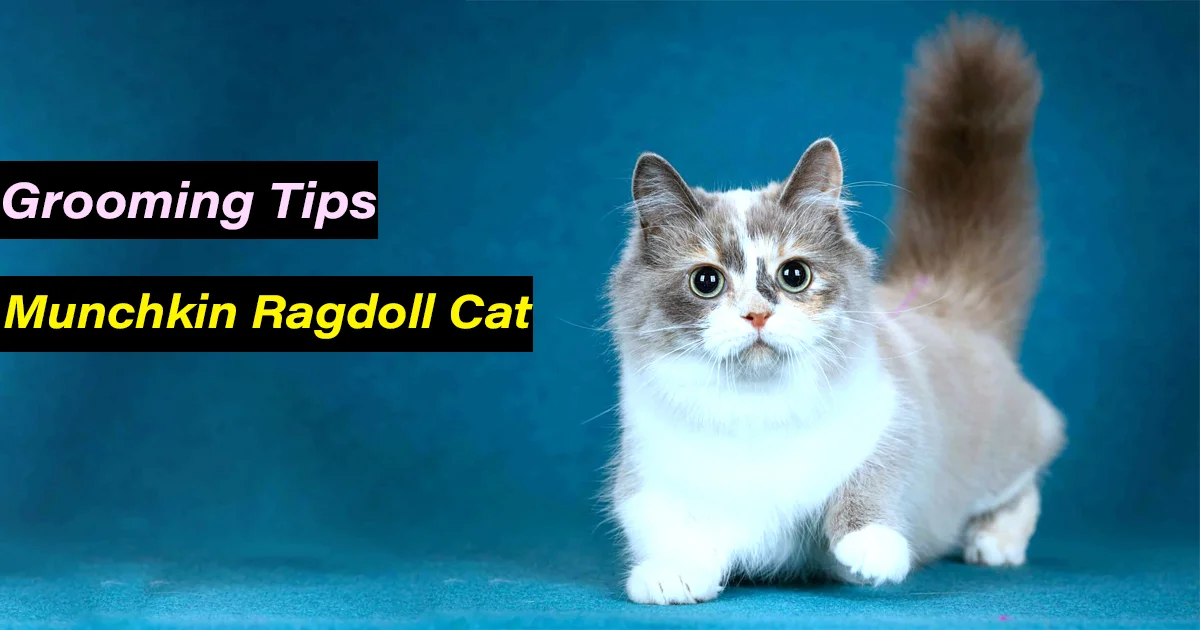
Ragdoll Cat Breed Characteristics
The Munchkin Ragdoll lifespan characteristics can vary, so regular health monitoring is crucial. Observing Ragdoll Munchkin lifespan trends helps identify any emerging patterns in longevity. Analyzing the aging process of Munchkin Ragdolls offers insights into their unique aging patterns.
Additionally, understanding the lifespan of mixed breed cats and how Munchkin Ragdoll lifespan statistics compare to other breeds is valuable. The Munchkin Ragdoll lifespan myths and facts clarify common misconceptions. Providing proper care and paying attention to genetic factors can help maximize their lifespan.
Their patient and tolerant demeanor makes Munchkin Ragdolls particularly well-suited for households with children and other pets. Ragdolls are often likened to dogs for their loyalty and eagerness to please, fostering strong, affectionate relationships with their human companions.
Physical Traits: Ragdolls are large, long-bodied cats with a muscular build and broad chests. They have sturdy, large paws and distinctive long, fluffy tails that enhance their elegant appearance. Their plush, silky coats come in various colors and patterns, including colorpoint, bicolor, mitted, and van variations.
One of the most striking features of Ragdolls is their deep blue eyes, which create a captivating contrast against their often lighter-colored fur, adding to their charm and allure.
| Care Aspect | Details |
|---|---|
| Exercise Needs | Moderate; enjoys playtime but is not overly active. |
| Grooming | Regular grooming (2-3 times per week) to prevent matting and tangles. |
| Shedding | Less shedding compared to some long-haired breeds; not considered hypoallergenic. |
| Overall Traits | Affectionate, gentle, with a striking physical appearance; manageable care needs. |
Munchkin Cat Ragdoll Lifespan in Cats
The Ragdoll Munchkin lifespan facts highlight important considerations for this hybrid breed. Understanding Munchkin Ragdoll cat health and lifespan is essential for effectively managing their well-being. Being aware of Munchkin Ragdoll lifespan considerations helps you anticipate and address potential health issues, ensuring a happy and healthy life for your feline companion.
- Regular veterinary check-ups, a balanced diet, and appropriate care are crucial in supporting their longevity and overall health.
Average Lifespan of Munchkin Cats
Munchkin cats typically live between 12 to 15 years, although some can live longer with proper care and attention. Their shorter legs do not necessarily adversely affect their lifespan, but they may be prone to certain health issues related to their unique body structure. Regular veterinary check-ups and a healthy lifestyle can help manage these risks and ensure a long, happy life for your Munchkin.
- “Maximizing Your Munchkin Cat Ragdoll Lifespan: Expert Tips for a Happy, Healthy Cat”
- “Ensuring a Long, Joyful Life for Your Munchkin Cat Ragdoll: A Comprehensive Lifespan Guide”
- The Ultimate Guide to Munchkin Cat Ragdoll Lifespan: How to Keep Your Hybrid Cat Thriving”
- “Unlocking the Secrets to a Longer Munchkin Cat Ragdoll Lifespan: Tips for Pet Owners”
- “What Every Owner Should Know About Munchkin Cat Ragdoll Lifespan: Best Practices for Longevity”
Average Lifespan of Ragdoll Cats
The Munchkin Ragdoll cat lifespan guide offers detailed information on how to care for these cats throughout their lives, ensuring their health and well-being at every stage. Similarly, the Ragdoll Munchkin cat lifespan guide provides practical advice for maintaining their health and addressing specific needs.
Understanding both Munchkin cat lifespan factors and Ragdoll cat lifespan factors contributes to the overall longevity of these hybrids. By focusing on nutrition, veterinary care, and a safe environment, you can help maximize their lifespan and quality of life.
Comparing Lifespan Between Munchkin and Ragdoll Cats
While both Munchkin and Ragdoll cats have unique characteristics, their lifespans can vary. Ragdolls generally enjoy robust health and have fewer genetic predispositions to certain health issues, allowing them to live slightly longer on average compared to Munchkins. Understanding these differences can help owners provide tailored care that supports the longevity and well-being of their feline companions.
Health Issues in Munchkin Cats
Munchkin cats may face health issues related to their short legs, including spinal problems and joint issues. It’s crucial for owners to monitor their weight and provide regular veterinary care to mitigate these risks. By staying proactive about their health, you can help ensure a longer, healthier life for your Munchkin cat. Regular check-ups and a balanced diet will support their overall well-being.
Health Issues in Ragdoll Cats
Munchkin Ragdoll cats are generally healthy, but they can be susceptible to conditions such as hypertrophic cardiomyopathy (HCM), a heart disease that is common in some breeds. Regular veterinary check-ups and a balanced diet are crucial for maintaining their health and longevity. By monitoring their heart health and ensuring they receive appropriate care, you can help your Munchkin Ragdoll thrive throughout their life.
Tips for Extending Your Cat’s Lifespan
To enhance your cat’s lifespan, ensure they receive a balanced diet tailored to their nutritional needs, engage them in regular exercise and mental stimulation, and provide a safe, stress-free environment. Additionally, regular veterinary check-ups are vital for the early detection of any health issues. By focusing on these key aspects, you can help your cat lead a long, healthy, and happy life.
Quality of Life Considerations
Creating a cat-friendly home environment is essential for your cat’s overall well-being and longevity. Include plenty of interactive toys, cozy resting spots, and opportunities for social interaction to keep your cat engaged and happy. A stimulating environment not only promotes physical health but also enhances mental well-being, contributing to a longer and more fulfilling life for your feline companion.
Conclusion
The Munchkin Ragdoll lifespan involves exploring the unique aspects of this hybrid breed and how its parent breeds influence its overall longevity. The lifespan of a Munchkin Ragdoll can be affected by various factors, including health, diet, and genetics. By examining Ragdoll Munchkin cat life expectancy and comparing it to the lifespans of each parent breed, we gain valuable insights into the expected lifespan of these charming cats.
Taking proper care of your Munchkin Ragdoll cat is crucial for maximizing their lifespan. This includes addressing their specific health needs, maintaining a balanced diet, and providing regular veterinary care. The Ragdoll Munchkin cat care tips and Munchkin Ragdoll lifespan tips in this guide offer practical advice for ensuring your pet’s well-being. By integrating knowledge from the Munchkin Ragdoll lifespan overview and Ragdoll Munchkin lifespan facts, you can make informed decisions that enhance the quality of life for your feline friend.
FAQs
How long do Munchkin cats live on average?
Munchkin cats typically live between 12 to 15 years with proper care.
What health issues are common in Ragdoll cats?
Ragdoll cats may be prone to conditions like hypertrophic cardiomyopathy (HCM) and urinary tract issues.
Can Ragdoll cats live longer than Munchkin cats?
Yes, Ragdoll cats generally have a longer lifespan, averaging between 15 to 20 years.
How can I ensure my Munchkin cat lives a long life?
Provide a balanced diet, regular exercise, and veterinary care tailored to their needs.
Are there specific diets that can help extend a Ragdoll cat’s lifespan?
A diet rich in high-quality proteins, essential nutrients, and adequate hydration can support a Ragdoll cat’s longevity.
